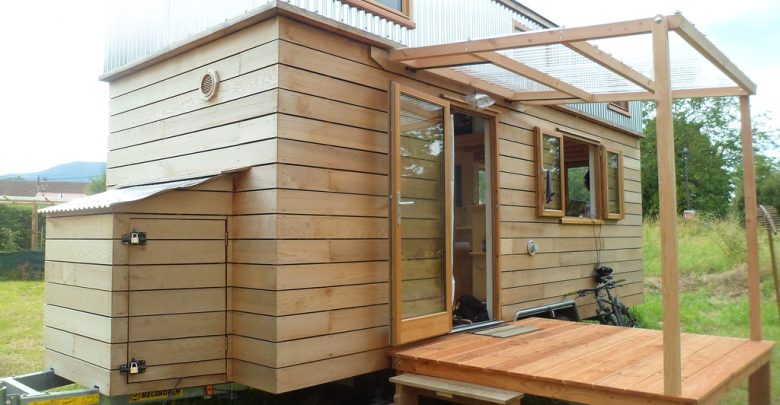
In general, Americans love living in big houses. On average, American homes are over twice as large as British, Japanese, and Italian homes. They can be up to three times as large as the average Chinese or Russian home too. With that said, some Americans – and people across the world – are beginning to embrace the “Tiny House Movement.”
These tiny houses have been featured on TV programs such as “Tiny House Hunters” and movies like “TINY: A Story of Living Small.” There are a few different reasons people go tiny, such as getting home without a mortgage, having a more portable home, and just trying to reduce personal carbon footprint.
Here’s a look at the pros and cons of a tiny house to give you an idea as to if tiny houses are a good alternative to conventional homes.
Table of Contents
Pros of Tiny Houses
1. Reduced Cost
The average tiny house costs much less to build than a conventional home. A tiny house can be built for as little as $23,000 – a fraction of the average $272,000 that goes into creating a full-size home. Tiny house owners also save money on household expenses.
2. No Mortgage
One downside of conventional homes is that they are impossible to buy without a mortgage. A 30-year old mortgage with a 4.5% interest rate Takes that $272k house and turns it into $482,000. Two-thirds of tiny house owners can buy their home without a mortgage, compared to 29% for conventional homes.
3. Reduced Energy Use
A tiny house is also much easier to maintain. Bills for utilities such as electricity, water, fuel, and waste disposal are lower. It’s also cheaper to live off the grid with a tiny house, as a small wood stove is all you need to heat it, and a small solar array is all you need to power it.
4. Freedom of Movement
Tiny houses have small footprints. They don’t take up a lot of room. To the point that many of them are built on trailers. You can take them wherever you want to go. So, if you’ve got to move for whatever reason – such as a new job – you don’t need to worry about buying a new home. Just take your old one with you.
Cons of Tiny Houses
1. Less Room
Tiny houses won’t have the room for a full-size kitchen or bathroom. Unless, that is, you’re willing to cut corners elsewhere. While they are good for solo living and a small family, a tiny house also doesn’t have the living space to support a large family.
2.Less Storage Space
Downsizing to a tiny house will likely mean having to get rid of some of your belongings. There just won’t be enough room for them. Things such as exercise equipment and even old kids toys will likely have to go.
3. Zoning Rules
Tiny houses, by their definition, don’t take up a lot of room. That said, zoning laws can make it challenging to build one. Some towns have minimum sizes for dwellings. The average 200-square-foot tiny house is too small to be legally considered a home in some places. Some people get around this by having a full-sized home that they rent out with their tiny house in the backyard registered as a “vehicle” or other “outbuilding.” They can also be kept in trailer parks.
Is a Tiny House Worth It?
There are several benefits to living in a tiny house. They take up less room and are cheaper. That said, there are also some downsides too. They could be worth it if you are living on your own and would like to live a freer life, but if you have kids and pets, then you should consider something a bit bigger.





Leave a Reply
Thank you for your response.
Please verify that you are not a robot.